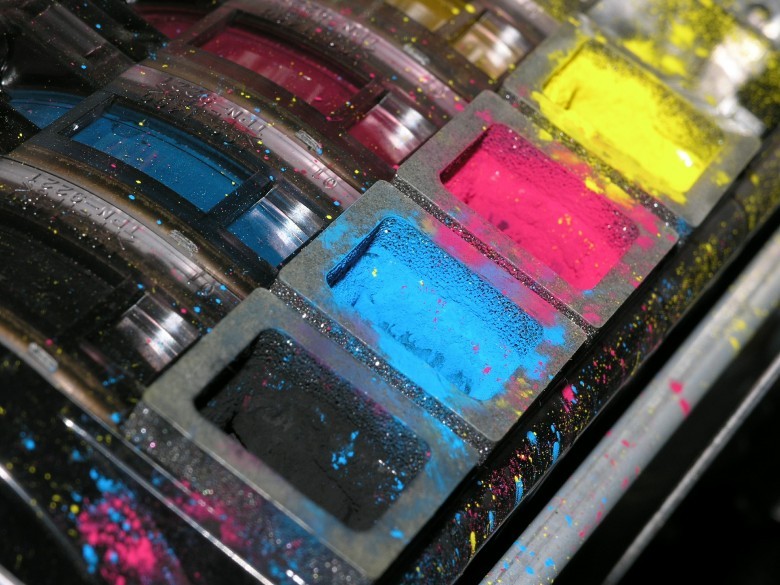
Printer Toner: Is it Hazardous or Not?
Probably everyone who deals with printing devices repair of toner cartridge refilling sooner or later begins to wonder: is toner hazardous for me?
Laser printers, copiers and toner itself cannot be positively defined as very harmful or absolutely safe. Like many home appliances, they have their maintenance rules to know and observe. Not taking precautions may have an unfortunate effect.
As far as copiers are concerned, you should consider this: image drum assembly heats up to 200 degrees Celsius and the coolers blow out gaseous waste products, dust and even toner (in the event that the device has poor technical condition or the cartridge is faulty).
Such temperature combined with water vapor derived from paper releases volatile organic reagents, which are contained in toner and paper. It is those reagents that are blown out from printer or copier. Some of them, like benzene or styrole, are considered to be very hazardous and classified as cancer-causing. This fact if often abused by tabloids to make up another sensational article. However, actual figures or comparison strength of the reagent are never mentioned. For instance, from those articles youll never know that an average printer working continuously for an hour exhausts about 10 time less benzene than one smoked cigarette.
Ozone emission, once a hot topic, doe not appear on the agenda anymore. The reason is strict modern standards for printing equipments - еру emission level of todays printers is low enough to call it safe.
As for the chemical aspect of some types of toner, its worth mentioning that most hazardous is Carbon Black class black toner, which is used by numerous monochrome printers. This kind of toner contains iron oxide and carbon as color agents, which at sufficient concentration have adverse effect on human health.
Color toners are free of heady metals as they are made of organic polymers - the plastic, to be brief. The color toners used to occasionally contain tin as a part of high toxic organic compounding. This substance was once added to paint to protect ships bottom from seaweed and shells. The substance got to human body through fish - seafood - human or fish - fish-meal - livestock feeding - meat - human food chains, hence the notoriety.
When contacted with skin, eyes, mouth, etc., toner may cause allergic reactions, depending on actual organism. The reasons behind this phenomenon are yet to be thoroughly researched. Explicit allergic properties of toner have not been discovered (expect for the fine granulation) and, what seems most likely, allergic reaction can be compared to that of flour, home dust or blossom dust.
Another case is when a person has to continuously stay in toner (or, say, cement) polluted premises, where skin and eyes are regularly exposed to the powder. It has been proved that such environment may cause long-lasting cough, skin crackles and inflammation and asthma.
Summing it up, this is what you need to know about printers and printer toner safety:
• Neither printing equipment, nor toner per se is something you can call very harmful or absolutely safe. Like other home appliances and chemistry, they require observing storage, usage and maintenance rules.
• The amount of potentially health affecting chemical reagents emitted at printing equipment work, for most part, meets the emission level requirement and does not exceed emission level of same reagents from other sources (not related with printing machinery).
• Office printing equipment requires being timely and periodically maintained at the service, just like the manufacturer recommends.
• Laser printer and
toner are less harmful during printing process than a cigarette smoke or the salt from the shelf in your kitchen.
• Most (potentially) hazardous are the ultra-fine particles of the toner. However, same is true not only for toner, but for other fine powder particles of similar size and weight. Unlike cement, toner is refilled in closed and often small premises, so everyday working environment must secure toner fine particles from finding its way to workers noses, mouths and lungs.
• Dont be paranoid and go to extremes - use your brain instead.
--
Stan Retner is a printer supplies specialist and the marketing director at ink and toner selling site
*Toner Cartridge Depot*




























